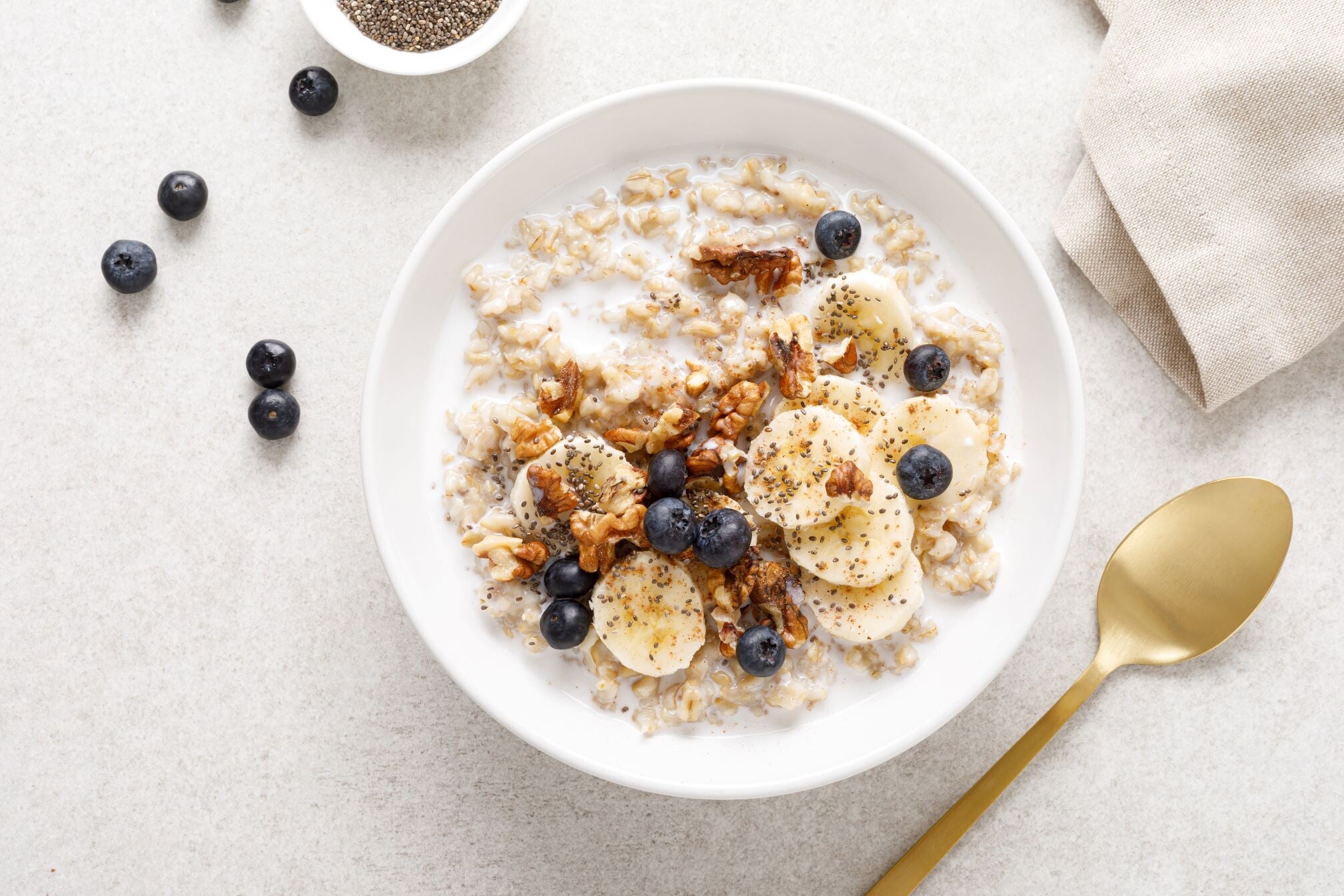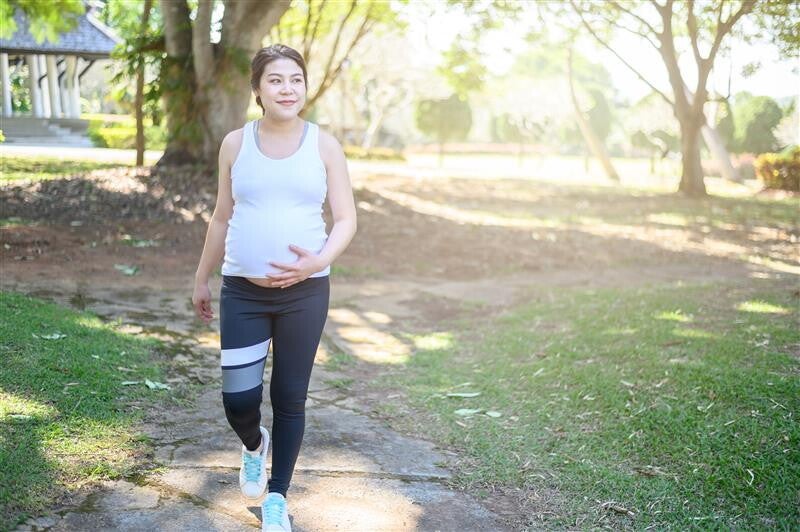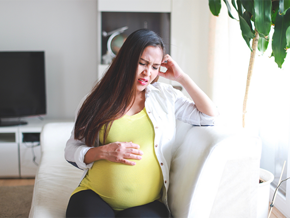
Pregnancy brings a lot of excitement and just as many questions, especially about how to support your growing baby from day one. Eating well is a great start, but it's not always enough. To help meet these extra needs, vitamins for pregnant women, like folic acid, niacin, and vitamins B, C, and D, play a crucial role.
Your doctor or nutritionist can guide you on which vitamins to take, how much you need, and when to start. To make things easier, here's a breakdown of what each vitamin does and what foods are rich in them. You'll also find the recommended daily nutrient intake based on the Philippine Dietary Reference Intakes (PDRI) by the Food and Nutrition Research Institute (FNRI) of the Department of Science and Technology.
1. Vitamin A
Taking Vitamin A during pregnancy helps your baby grow strong and healthy from the get-go. It plays a big role in forming organs, bones, and a working immune system. It also supports your health, especially your vision and skin. If you don't get enough vitamin A, there's a higher risk of night blindness, infections, and anemia.
However, too much vitamin A, usually from supplements, can cause side effects like severe headaches and muscle aches. It also puts your baby at risk of congenital disabilities. So, take your ob-gyn's prescribed dosage.
How much vitamin A do you need
PDRI recommends a daily intake of vitamin A at 900 mcg (micrograms of retinol equivalent) if you're pregnant. Always follow the dose from your healthcare provider.
Foods rich in vitamin A
- Liver
- Milk
- Eggs
- Green vegetables like kangkong and broccoli
- Root vegetables like potatoes, sweet potatoes, and carrots
- Squash
- Yellow fruits like banana
2. Vitamin B1 (Thiamin)
Thiamin or vitamin B1, plays a key role in helping your body convert food into energy, something you’ll need more of during pregnancy. It helps keep your heart, muscles, and nervous system working smoothly. Low B1 levels can make you feel tired or weak, which isn't ideal with the demands of a growing baby inside you.
According to this Frontiers in Nutrition study, a thiamin deficiency (also known as beriberi) puts you and your baby at serious health risk. It can cause you to experience mood changes, severe vomiting, and cardiac problems. Thiamin deficiency can also lead to health complications for your baby, including neurodevelopmental issues.
How much thiamin do you need
Work with your ob-gyn to know how to keep up with your thiamin needs. The recommended daily intake of vitamin B1 based on PDRI is 1.4 mg of thiamin per day during pregnancy.
Foods rich in thiamin
- Brown rice and whole grains
- Pork
- Legumes like lentils and beans
- Nuts and seeds
- Green peas
- Enriched cereals and breads
3. Vitamin B2 (Riboflavin)
Riboflavin helps your body produce energy from food and absorb iron, helping you avoid anemia. It also influences your baby’s weight, length, and bone, muscle, and nerve development. Because it’s water-soluble, your body doesn’t store vitamin B2, so you need a steady supply through food or supplements.
How much riboflavin do you need
Pregnant women need 1.8 mg of vitamin B2 daily based on PDRI. Check with your doctor if your pregnancy multivitamin supplement has more than the recommended riboflavin.
Foods rich in riboflavin
- Milk and dairy products
- Eggs
- Lean meats and liver
- Dark leafy greens like spinach
- Whole and enriched grains
- Mushrooms
4. Vitamin B3 (Niacin)
According to the Harvard T.H.Chan School of Public Health, vitamin B3 provides support for 400 enzymes to keep your body running smoothly. It also helps repair DNA and fight cell damage.
During pregnancy, taking niacin can help reduce the chances of congenital anomalies among babies, as this review in the European Journal of Nutrition shows.
How much niacin do you need
The recommended daily intake of niacin based on PDRI is 18 mg NE (niacin equivalents) during pregnancy. Foods can also be enriched or fortified with niacin.
Foods rich in niacin
- Chicken
- Fish like tuna and salmon
- Beef and pork
- Peanuts
- Brown rice and whole grains
- Mushrooms
- Legumes
5. Vitamin B6

A bowl packed with vitamins for pregnant women, from vitamin B6 to folate.
Vitamin B6 or pyridoxine does much behind the scenes during pregnancy. It helps support your baby’s brain and nervous system as they grow in your womb. Plus, it comes with a bonus.
Liezl M. Atienza, RND, PhD, director of the Institute of Human Nutrition and Food at the University of the Philippines Los Baños (UPLB), says B6 can help ease nausea and vomiting during the first trimester.
How much vitamin B6 do you need
Based on the PDRI recommended daily intake, you'll need 1.9 mg of vitamin B6 during pregnancy. Your doctor may put you on a supplement with a higher dosage if you suffer from nausea during the first trimester.
Foods rich in vitamin B6
- Fish like tuna and salmon
- Organ meats such as beef liver
- Starchy vegetables like potatoes and squash
- Cabbage
- Chickpeas
- Bananas
- Whole grains
6. Vitamin B9 (Folate)
Did you know that the https://www.who.int/tools/elena/interventions/folate-periconceptionalWorld Health Organization recommends taking folate at least one month before getting pregnant? According to the FNRI, folate (vitamin B9) and its synthetic form folic acid for pregnancy can reduce the risk of neural tube defects, such as spina bifida, encephalocele, and anencephaly. So, taking it before you conceive and during the early weeks of your pregnancy gives your baby the best possible start.
How much folic acid do you need
When pregnant, you'll need about 600 mcg DFE (dietary folate equivalent) of natural food folate and folic acid daily. Because it can be challenging to get enough folate from food alone, your doctor may prescribe folic acid supplements.
Folate-rich foods
- Whole grains
- Walnuts
- Leafy greens like spinach, kangkong, and asparagus
- Citrus fruits like oranges
- Other fruits like melons, bananas, and avocados
- Beans and legumes
- Beef liver and lean beef
- Seafood
- Eggs
7. Vitamin B12
Vitamin B12 supports red blood cell production and helps form DNA, both essential when growing a new life. B12 works with folic acid to prevent congenital abnormalities, especially those affecting the spine and brain.
How much vitamin B12 do you need
Pregnant women need 2.6 mcg of vitamin B12 a day based on the PDRI recommended daily intake. Moms-to-be who are vegetarians and vegans need to monitor their B12 levels since this vitamin is primarily found in animal products.
Foods rich in vitamin B12
- Eggs
- Milk, cheese, and yogurt
- Meat and poultry
- Fish and shellfish
- Fortified cereals
- Nutritional yeast (fortified varieties)
8. Vitamin C
Vitamin C is a nutrient powerhouse for pregnancy. It boosts your immune system, helps form your baby’s bones and teeth, and improves how your body absorbs iron and folic acid. It also supports healthy blood flow, which may lower the risk of preeclampsia.
How much vitamin C do you need
Based on PDRI recommended daily intake, you need 70 mg of vitamin C during pregnancy a day with an upper limit intake of 2000 mg if you're 19 and above. Younger moms can have a maximum of 1800 mg.
Foods rich in vitamin C
- Broccoli
- Bell peppers
- Green beans
- Malunggay
- Potatoes
- Tomatoes
- Guava
- Citrus fruits like dalandan and oranges
- Strawberries
- Kiwi
- Papaya
9. Vitamin D
You'll definitely need vitamin D during pregnancy to help your body absorb calcium and phosphorus, both essential for your baby’s bones and teeth. Vitamin D also supports your immune system and may help reduce the risk of preterm birth.
Sunlight is the best natural source of vitamin D. If you're not getting enough sun exposure to store vitamins D2 and D3, your doctor will recommend vitamin D-rich foods and supplements.
How much vitamin D do you need
The recommended daily intake of vitamin D based on PDRI is between 200 IU (5 mcg) and a max of 2,000 IU (50 mcg). Vitamin D helps absorb the calcium you get from food.
Vitamin D-rich foods
- White mushrooms
- Fish like salmon
- Soy, almond, or oat milk
- Eggs
- Cod liver oil
How to Stay Healthy, according to a Nutritionist

A well-balanced diet pairs well with regular physical activity for a healthy pregnancy!
What you eat every day can provide most of the recommended nutrients crucial for pregnancy. So, building good eating and lifestyle habits is just as important. We asked Dr. Atienza, who also teaches at UPLB, to share 10 tips for staying healthy during pregnancy.
- Eat whole-grain breads, cereals and grains.
- Include five or more servings of fruits and vegetables in your diet daily.
- Choose unsaturated fats such as plant oils and lessen the intake of cholesterol-rich saturated fats such as butter, lard and other animal products.
- Avoid salty and sweet foods.
- Drink plenty of water and get plenty of sleep.
- Stay physically active.
- Maintain a healthy weight gain.
- Do not smoke.
- Do not drink alcohol.
- Avoid raw and undercooked foods as they may contain harmful bacteria that can cause illness.
You can get more nutrition inspiration with this helpful Filipino meal plan ideas for pregnant women.
When you're pregnant, your body works overtime to care for your baby, so your nutrition will really need a little extra attention. Getting enough of the right vitamins helps your baby grow strong and keeps you feeling your best.
Before starting on vitamin supplements, check with your doctor to know what you need and how much, based on your health and where you are in your pregnancy. And don't forget your diet can do a lot of the work. Happy eating!
What do you find surprising when it comes to vitamins for pregnant women? Share your thoughts on ParentTeam's Facebook group!
References
“Dietary Supplement Fact Sheets,” accessed May 12, 2025, https://ods.od.nih.gov/factsheets/list-all/.
Johns Hopkins Medicine. “Folic Acid for a Healthy Baby,” November 18, 2024. https://www.hopkinsmedicine.org/health/conditions-and-diseases/folic-acid-for-a-healthy-baby.
ACOG. “Nutrition During Pregnancy,” June 2023. https://www.acog.org/womens-health/faqs/nutrition-during-pregnancy.




























